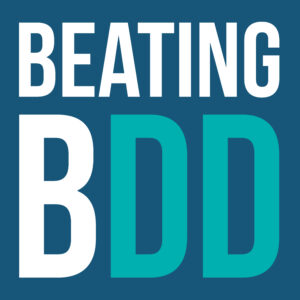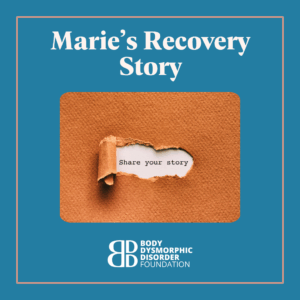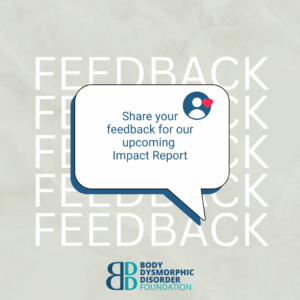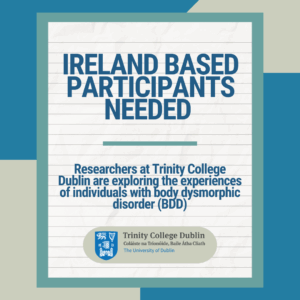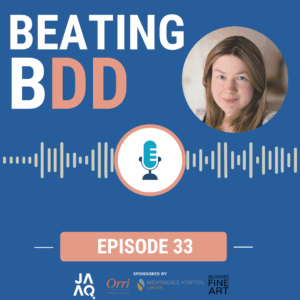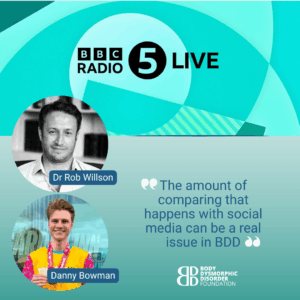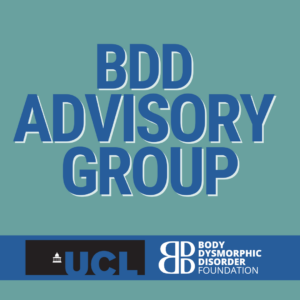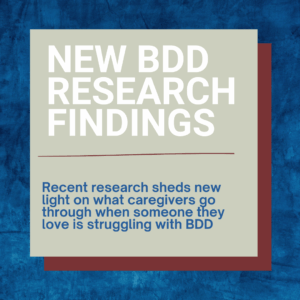Justin Brass shares his experience of BDD through a thought provoking essay.
Disciplining of Men and Women’s Bodies: The Influence of Technology and Nature on Viewing Body Image
My relationship between my health and how I critique my body has been through the influence of technology and nature causes me to feel like I need to discipline myself into meeting unrealistic beauty standards. Furthermore, I have put energy into these beliefs for many years before I was diagnosed with BDD, as society regulates our reliance on the media, which perpetuates various social and traditional expectations of men and women and how they should perceive their bodies. Specifically, this process has generated a significant amount of pressure on I view my self-worth and personal value, as many young boys are exposed to the media’s scrutiny to always appear thin and in specific ways (i.e., ‘the ideal standard for how men should be’). Over time, these expectations have not only become integrated into how I use technology today but has caused me to compare myself to the artificial nature of constructed media, which teaches people to discipline their bodies into meeting conformity. Further, I have realized that our relationship with rising technologies is quite dependent, which has become a necessary component of how many of us live our lives (with or without BDD). This reliance on technology also shapes our normative culture, which is heavily influenced by the images, messages, and standards that we come into contact with throughout our regular lives. These messages are also taught to many of us through our socializing agents such as friends and family, which further perpetuate the standards of what a man or woman should look like. For example, as a child, my father always told me that I needed to spend more time bench pressing because it would make my body look more ‘fit’. My father would also tell me to play more sports and to exercise frequently because men needed their bodies to appear athletically fit, as participation in these kinds of activities were something that I always felt pressured to do. Although I never considered myself to be in an unhealthy physical state, I continuously felt pressured by my family to lift weights, work out, and fixate on my appearance. As a result, the more I did not achieve bodily results that matched what my father expected from me, the further I felt I needed to discipline my body as extremely as possible (i.e., so that I could fit in with the rest of the boys my age). I do not imagine this experience to be different for many men and women such as myself, as many of us are taught at a young age to focus on how our identities appear to others and on remaining beautiful, skinny, and physically ideal. Like many men who can be teased by their peers for not being “buff” enough, there is a great amount of pressure placed onto lots of us who feel like we will do anything just to fit the framework of acceptance by society’s standards. I found the influence of my father to be the biggest impact on my BDD thoughts and behaviours, which in turn led me to compare myself to others in the media because it reinforced the negative perceptions that I was being taught at home. My experience with my family in relation to how I have relied on technology and media was a considerable influencer of triggering my BDD for many years.
However, once I decided to step away from these unhealthy ideologies and into understanding how our bodies are a part of our nature and not based on how the media constructs our views of the ‘perfect body’, that I felt like I was freeing my mind from pressure. This is what I call the truer ‘nature’ of how we should conceptualize seeing our bodies, as I have studied how complex the human body is and how easily influenced it is by environmental factors, which causes our bodies to develop in ways that are sometimes completely out of our control. In turn, we can not control the nature of our bodies, as each of these many factors will alter our body’s dimensions and it is not our fault if we do not end up matching certain beautified standards. Yet, through our discovery of trying to understand ourselves on a deeper level, our society has developed several labels for describing our physical beings anyway. Through this effort to understand our bodies, we have created several additional terms to classify the diverse or more unique aspects of our bodies. In turn, the expectation to categorize oneself to fit into the framework of society has only divided us into groups based on how we feel we should identify our health, gender, nature, and body image in relation to everyone else around us. Unfortunately, this occurrence continues to be highly influential in shaping how most of us structure our opinions of ourselves, which is either supported or discriminated against by the same arbitrary beauty standards we have placed in society.
As such, many people like myself have learned from social media to possess low self-esteem because they are constantly being exposed to various influencers and celebrities who perpetuate beliefs that a person can only be accepted if they meet a certain image. This has not only led to encouraging my own problematic behaviour, such as in practicing under/overeating to achieve a certain weight limit, but has also negatively impacted my mental health. In my personal life, I have been a victim of this experience for many years, as I have struggled with overeating habits for most of my life whenever I felt bad about how I looked. However, I now realize due to my natural body structure, no matter how hard I push myself to eat, I cannot seem to meet the weight goal that I have always desired. For a long time, this caused me to think negatively about myself, as I continued to push myself into meeting an ideal male body standard. It was only in recent years, whilst at university, that I realized I was punishing myself, as there was no real or valuable reason for why I was disciplining my body so severely. Once I realized why I was engaging in this behaviour and how it was impacting my health, I understood that this situation was a problem with how I viewed myself. For many years I tried to conform to the unrealistic standards of what the media and what my peers had told me was the true ‘norm’. I never understood why I felt so much stress when I would think about my body image until I realized that I was not alone in struggling with how I saw myself. Furthermore, I felt because I was uncomfortable with my body, I was uncomfortable with who I was on a more meaningful level. The effects of this behaviour led me down the wrong path for many years, which caused me to neglect my mental health and to judge myself for things that are out of my control. Thus, I believe to truly live healthily we must first become comfortable with how we see our bodies. Whether you are a man, woman, or non-gender individual, it is important that you learn ways to bring awareness into the narrative of how you see yourself and in comparison to others and the media. In turn, we can teach future generations that we all come with imperfect bodies, which will allow us to advocate for a future where we can respect each other’s appearances and prioritize healthier ways of living such as in promoting wellness.
More stories from the community
